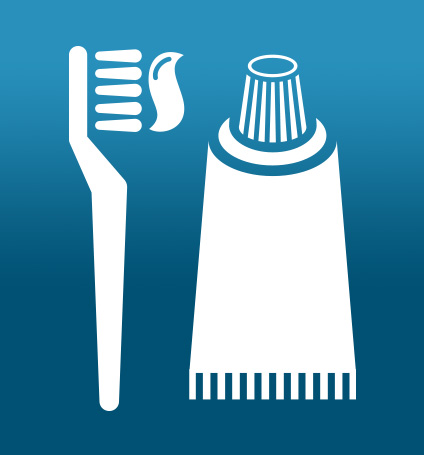PREVENTATIVE CARE
PREVENTATIVE CARE

Cleaning and Consultation
We all know that good oral hygiene keeps your teeth looking clean and shiny, but did you know that it’s also essential to your overall health? It’s true, poor oral hygiene can lead to a variety of dental and medical problems such as gum disease, infection, heart disease, stroke, and even diabetes.
That’s why dentists recommend that teeth be cleaned professionally at least twice a year. Teeth cleaning is the removal of dental plaque and tartar in order to prevent cavities, gingivitis and gum disease.
At Beautiful Smiles of Long Island, we frequently perform a variety of dental cleaning procedures, from scaling to whitening, so you can rest assured that yours will be performed by a skilled and experienced dental professional.
We are dedicated to providing the highest standard of quality in all dental procedures to ensure our patients’ complete satisfaction. Using state-of-the-art dental technology, we have improved thousands of smiles, and we want to do the same for you. To schedule an appointment or a consultation, please contact us today.

Dental Hygiene/Periodontal Health
In addition to the meticulous cleaning, polishing, and examination of your teeth, we also take the time to help our patients develop proper oral hygiene habits at home. We will evaluate your hygiene techniques and make adjustments to your routine where needed. Our doctors and hygienists will also make suggestions for preventative measures such as dental sealants or nightguards to protect against bruxism & TMJ.
If we feel that you are suffering from gingivitis or more severe gum disease, we may recommend a root scaling or planing. These measures can be instrumental in preventing bone loss and helping you to keep your natural teeth.

Oral Cancer Screenings
During a dental exam, the doctor will check your neck and oral tissues for lumps, red or white patches or recurring sore areas.
Screening for early changes in the oral tissue can help detect cancer at a stage when it can be more successfully treated.
Smoking, especially combined with heavy alcohol consumption (30 drinks a week or more), is the primary risk factor for oral cancer. In fact, this combination is estimated to be the most likely trigger in about 75 percent of oral cancers diagnosed in this country. Other lifestyle and environmental factors also may increase your risk of developing oral cancer.

Scaling & Root Planing
Scaling and root planing is a non-surgical procedure in which the periodontist removes plaque and tartar from below the gum line. Root surfaces are cleaned and smoothed with specially designed instruments. It is important to remove the plaque and tartar from the pockets, because aside from the bacterial toxins that irritate the gums, plaque and the rough surfaces of tartar make it easier for bacteria to gain a foothold.

Digital X-Rays
Dental X-rays are a valuable diagnostic tool used to identify decay, tumors, cysts, and extra teeth, as well as track the progress of previous procedures. Although generally considered safe, traditional X-rays briefly expose patients to radiation. New technologies now allow for digital X-rays, which reduce radiation exposure by up to 80 percent, and produce instant, high-quality images.

KaVo DIAGNOdent
The KaVo DIAGNOdent is an invaluable tool in the detection of cavities (caries) when the tooth looks whole and healthy on the surface, or when only a small portion of the cavity is visible. The DIAGNOdent’s sensitive laser probe locates even the smallest and newly-developed hidden caries in the teeth with high accuracy and no scraping, no tissue damage and no radiation. It works by measuring differences in fluorescence between healthy and diseased tissue. Its laser light can penetrate into tiny fissures to allow dentists to see further inside the tooth with more detail than has ever been possible with traditional dental instruments, including X-rays. Based on the DIAGNOdent’s findings, your dentist will recommend the best course of treatment, from simple preventive measures to minimally invasive restoration to more extensive dental work.

Flossing
While brushing your teeth everyday is important, brushing alone cannot remove all the plaque that builds up in the teeth. Flossing is effective in reaching areas that a toothbrush cannot reach, such as in between teeth, and can also help polish tooth surfaces and control bad breath.
Flossing is an essential practice for avoiding gum disease and preventing tooth decay.

Fluoride
Fluoride helps strengthen tooth enamel and prevents cavities and other dental conditions. Although it is found in water and many different types of food, some people do not consume enough to keep their teeth strong and healthy. Fluoride treatments are available for these people in the form of toothpastes, mouth rinses, gels or foams, and are also given regularly to children, who need sufficient amounts of fluoride in order to develop healthy permanent teeth.

Sealants
Good oral hygiene – brushing and flossing daily – and a healthy diet are the best way to prevent plaque build-up in the mouth. But even the most thorough brushing does not always reach the deepest indentations in the back teeth (molars). Dental sealants fill in these depressions, preventing bacterial formation that causes tooth decay and other damage. In a procedure that takes only a few minutes per tooth, the dentist cleans the tooth, applies an acid solution to roughen the surface, and bonds a plastic sealant to the tooth. A special light may be used to speed the hardening process. Sealants can help both adults and children, and may be re-applied every few years.

